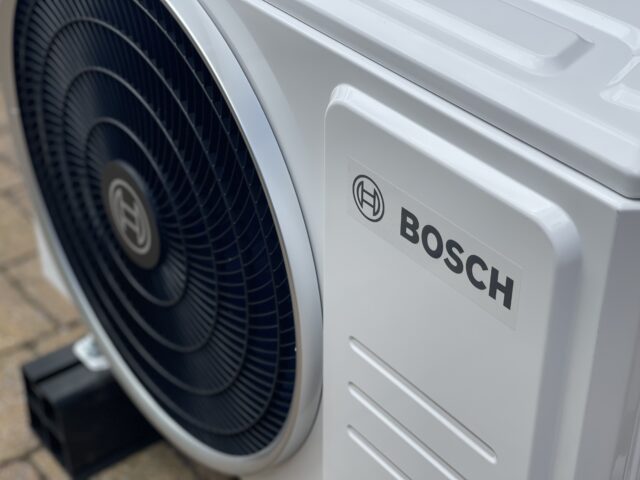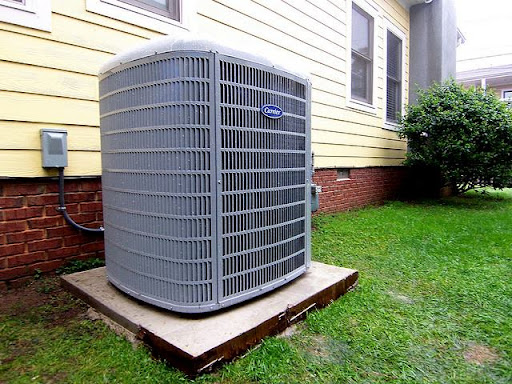
Air conditioning (AC) systems are essential during the hot summer months, offering relief from high temperatures and improving comfort indoors. However, when your AC is running but not cooling, it can be frustrating and uncomfortable. If you’ve ever experienced your AC blowing air without actually cooling it down, you’re not alone. There are several potential reasons for this issue, ranging from minor problems that you can fix yourself to more serious issues that require professional attention.
In this blog post, we’ll explore the common causes of this problem and provide guidance on how to diagnose and fix it.
1. Dirty or Clogged Air Filters
One of the simplest and most common reasons your AC isn’t cooling properly is a dirty or clogged air filter. Air filters are designed to trap dust, dirt, and debris from the air as it circulates through the system. Over time, the filter can become clogged with these particles, restricting airflow. This reduced airflow can make it difficult for your system to cool the air efficiently.
How to Fix It:
- Turn off your AC unit before attempting any maintenance.
- Locate the air filter (usually in the return air duct or air handler).
- Remove the filter and inspect it for dirt and debris.
- If the filter looks dirty, replace it with a new one or clean it if it’s washable.
- Make sure to change your air filter every 1-3 months to prevent this issue in the future.
2. Thermostat Issues
Your thermostat is the brain of your air conditioning system, regulating the temperature inside your home. If the thermostat is malfunctioning, it might not send the correct signal to your AC unit, causing it to run without cooling the air properly.
Common thermostat issues include:
- Incorrect settings: Check if the thermostat is set to cooling mode and at the desired temperature.
- Dead batteries: If your thermostat is battery-powered, the batteries may be low or dead, affecting its performance.
- Faulty sensor or wiring: A malfunctioning thermostat sensor can cause inaccurate readings, leading the AC to run constantly without reaching the desired temperature.
How to Fix It:
- Check the thermostat settings and ensure it’s on “cooling mode.”
- Replace the batteries if applicable.
- If the thermostat continues to behave erratically, consider contacting a professional HVAC technician to inspect the sensor and wiring.
3. Refrigerant Leak
Refrigerant is a crucial component of the cooling process in your AC unit. It absorbs heat from the air inside your home and expels it outside. If there’s a refrigerant leak, the system won’t have enough refrigerant to cool the air effectively. This can result in warm air blowing from the vents, even though the AC is running. Regular aircon servicing Bedok can help detect and fix refrigerant leaks, ensuring your unit operates efficiently and keeps your home cool during the hot months.
How to Detect a Refrigerant Leak:
- You may notice the AC system running longer than usual without cooling the air.
- Ice may begin to form on the evaporator coils.
- Your energy bills might increase because the system is working harder than normal.
How to Fix It:
- If you suspect a refrigerant leak, it’s best to call a licensed HVAC technician. Refrigerant issues are complex and require professional knowledge and equipment.
- The technician will locate the leak, repair it, and recharge the system with the appropriate amount of refrigerant.

4. Dirty or Blocked Coils
Your air conditioner has two sets of coils—the evaporator coil (inside) and the condenser coil (outside). These coils play a crucial role in the heat exchange process. If either set of coils becomes dirty or blocked, your AC won’t be able to cool the air effectively.
- Evaporator coils: Over time, the evaporator coils can accumulate dust and grime, making it difficult for the refrigerant to absorb heat properly.
- Condenser coils: If the outdoor unit’s condenser coils are blocked by debris (such as leaves or dirt), the system won’t be able to release the heat it has absorbed.
How to Fix It:
- Clean the coils: Turn off your AC and remove any debris blocking the outdoor unit. For the evaporator coil, you may need to remove panels to access the coils and clean them gently with a soft brush or coil cleaner.
- Call a professional: If you’re unsure about cleaning the coils yourself or if the coils are severely dirty, a professional HVAC technician can perform a deep clean.
5. Frozen Evaporator Coils
Frozen evaporator coils are another common cause of an AC running but not cooling the air. When the coils freeze over, they can’t absorb heat from the air properly, which leads to warm air blowing from the vents. Frozen coils can be caused by several factors, including poor airflow, low refrigerant levels, or dirty coils.
How to Fix It:
- Turn off the AC: Allow the coils to thaw, which may take several hours.
- Check airflow: Once thawed, check the air filter and make sure there’s no blockage in the air ducts that could be restricting airflow.
- Check refrigerant levels: If the coils freeze again after thawing, it may indicate a refrigerant leak, and you should call a professional technician.
6. Electrical Issues or Faulty Components
There could be an electrical issue affecting your AC’s ability to cool properly. This could involve malfunctioning components such as the compressor, capacitor, or contactor. If any of these components fail, the AC may run, but it won’t be able to cool the air efficiently.
How to Fix It:
- Call a professional: Electrical issues with HVAC systems are complex and can be dangerous to address without the right knowledge. An HVAC technician will be able to diagnose the electrical problem and replace the faulty components.
7. Overloaded or Undersized AC Unit
If your AC unit is too small for the size of your home, it may struggle to cool the space effectively, even if it’s running. On the other hand, an overloaded system may not have the capacity to remove heat from your home efficiently. Both issues can result in poor cooling performance.
How to Fix It:
- If your unit is undersized, you may need to replace it with a larger, more efficient model. An HVAC professional can help you determine the correct size for your home.
- If your system is overloaded, regular maintenance, such as cleaning and servicing, can help improve its efficiency.
Conclusion
If your AC is running but not cooling the air, there are several potential causes ranging from simple issues like dirty filters to more complex problems such as refrigerant leaks or electrical failures. Regular maintenance, such as replacing filters, cleaning coils, and ensuring proper airflow, can prevent many of these issues.
However, if you’re unable to resolve the issue on your own, or if it appears to be related to refrigerant, electrical components, or other complex systems, it’s best to contact a professional HVAC technician. Timely attention and repair can help restore your AC’s cooling power and prevent further damage down the road.
